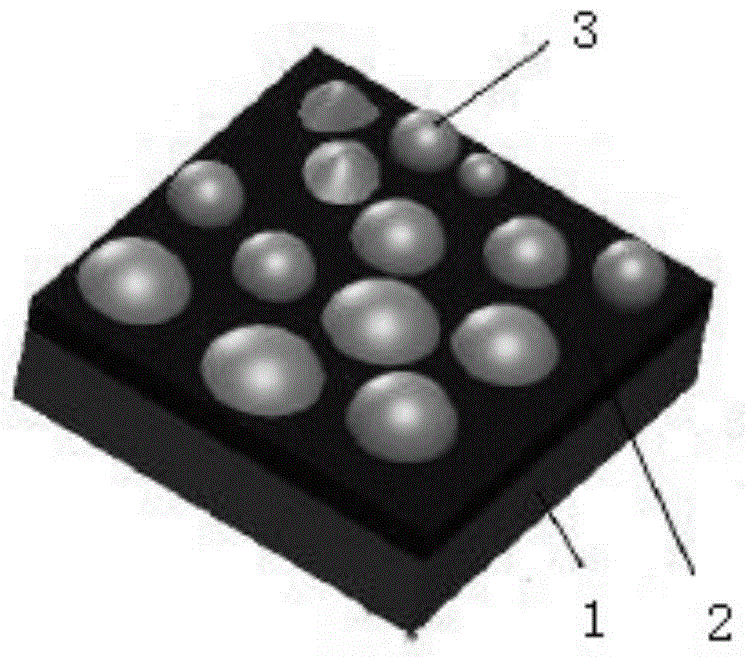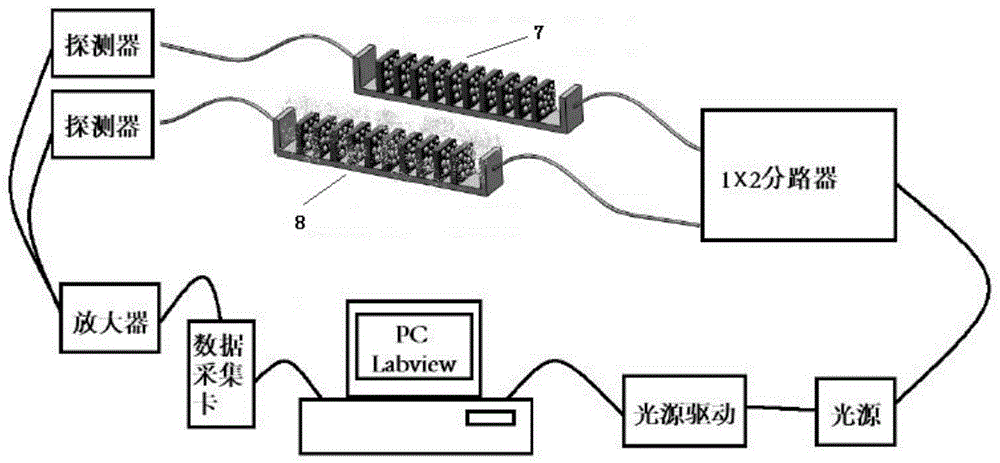Optical fiber hydrogen sensor sensitized by multilayer nanoparticle film
A nanoparticle and sensor technology, applied in the field of optoelectronics, can solve the problems of difficult to detect signal changes, small size and inconvenience of nanoparticle materials, and achieve the effect of eliminating response speed, small interface stress and fast hydrogen sensing speed
- Summary
- Abstract
- Description
- Claims
- Application Information
AI Technical Summary
Problems solved by technology
Method used
Image
Examples
Embodiment Construction
[0034] The present invention will be further described below in conjunction with the accompanying drawings and specific embodiments.
[0035] A fiber-optic hydrogen sensor sensitized by a multilayer nanoparticle film, such as figure 2 As shown, it includes: an air chamber; a glass substrate array 5 parallel to each other and arranged equidistantly (the distance is not particularly limited, as long as it is not too far away, the light can penetrate the multilayer film without attenuation to the point where it cannot be measured), and is arranged in The inside of the gas chamber is perpendicular to the bottom surface of the gas chamber; the hydrogen-sensitive nanoparticle film is coated on each glass substrate (it can be coated on only one side, or both sides can be coated, but it is difficult to meet the requirements in terms of coating process on both sides, no need It is limited that all the glass substrates are plated on the same surface, and the effect can be achieved); th...
PUM
| Property | Measurement | Unit |
|---|---|---|
| thickness | aaaaa | aaaaa |
| diameter | aaaaa | aaaaa |
Abstract
Description
Claims
Application Information
 Login to View More
Login to View More - R&D
- Intellectual Property
- Life Sciences
- Materials
- Tech Scout
- Unparalleled Data Quality
- Higher Quality Content
- 60% Fewer Hallucinations
Browse by: Latest US Patents, China's latest patents, Technical Efficacy Thesaurus, Application Domain, Technology Topic, Popular Technical Reports.
© 2025 PatSnap. All rights reserved.Legal|Privacy policy|Modern Slavery Act Transparency Statement|Sitemap|About US| Contact US: help@patsnap.com



